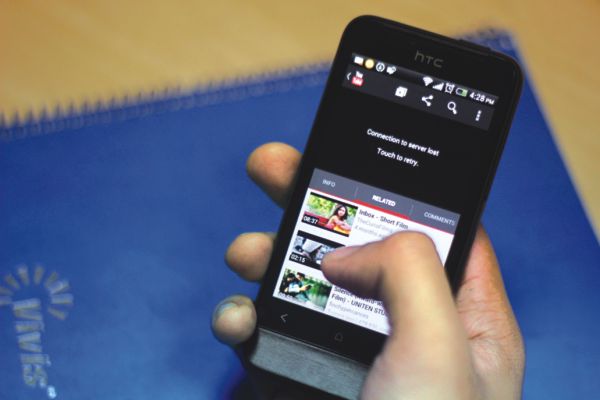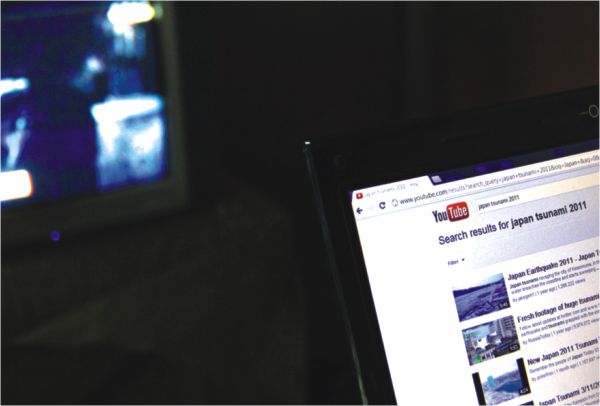Extra Credit
| Youtube, Please? |
 |
Sabhanaz Rashid Diya
Photos: Kazi Tahsin Agaz Apurbo
Last week, I dreamt about Youtube. I was sitting in front of my computer, surrounded by friends who were gawking over the screen because Youtube was finally open and we were watching Lonely Island's Like a Boss. I'm certain the choice of song had nothing to do with my music taste (though it is a song with over 99 million views), but the apparent idea that the end of the world will one day be mesmerised by a resource that the other end of the world uses like tissue paper, says a lot. It either shows we are too dependent on the internet or worse, we are unnecessarily deprived from it.

A digital flow of information seems to be unavailable in the process of building Digital Bangladesh.
When the government came up with the vision for Digital Bangladesh, we were hoping it would be more than shifting from giant phones with rotating dialers to electronic digits displayed on a sketchy green screen. We thought we will get higher bandwidth at lower costs, increase in the number of techpreneurs, updated web portals for ministries and, the best bit, a faster, time-friendly, smoother, traceable and digital flow of information. We would have never anticipated a set of draft guidelines that asks online mass media to pay unthinkable fees, temporary shutdown of social networking websites like Facebook and now, the rather lengthy detachment from Youtube. Question is how much of this transformation makes sense?
If you are taking fundamental or intermediate economics courses at university, you would know how useful those flash videos on Youtube can be. If you need to know who's making it to the Billboard Top Chart this week, you realise how convenient it was to simply hit the tab, 'most recent'. Once upon a video, an advertisement for marketing class, an old short film or a lesson in history -- it now seems how Youtube had it all. As one of the greatest open-source, collaborative tools of our time, it is not surprising we miss Youtube just as much as we would have missed Wikipedia on the day of exams. It seems naïve to block an entire website when one could have easily removed a particular controversial video. Even if someone is remotely interested in such issues then he can just download the video from a million other sources.

No longer access to the bottomless archive of information.
However, that's just one end of the story. A second class of thought takes this as an opportunity to indicate how shallow we are becoming as a society. If we are so busy protesting against the ban on Youtube, then who will protest against the political and religious atrocities in places like, Ramu? If we are so 'sold out' to 'foreign resources', then who will worry about developing local platforms, over thinking issues of national concern? Is the next generation of leaders so bluntly globalised that they cannot read between the lines, differentiate between countries or stand up for their birth identities? Why make a fuss over Youtube when we have Padma Shetu to keep us occupied?
As journalists, we are taught to present balanced views. We are told to dig deeper, not form an opinion and listen to debates. Good thing is that journalists turned to columnists sometimes can be less cautious. So, when I finally woke up from that rather peculiar yet, surprisingly happy dream, I realised how pointless the ban was. I realised how difficult it was to access videos that could easily convince me about the world around, to learn things that I would have effortlessly done so otherwise. I no longer could search through a bottomless archive of information on almost every topic known, watch a video to bake a cupcake or track back local numbers from the 80s. Frustrated much? Yes, sir!
(Sabhanaz Rashid Diya is a major in Media and Communication at Independent University Bangladesh and founder of the nonprofit youth organisation, the One Degree Initiative Foundation.)
|
